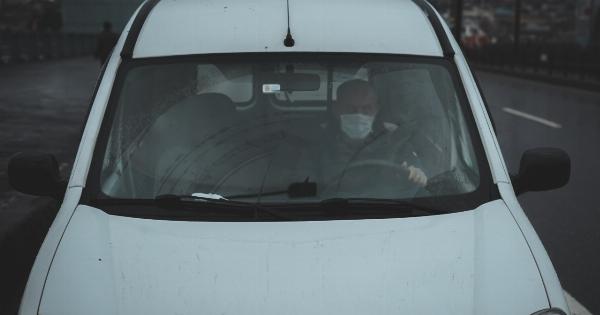Warts are a type of skin infection caused by the human papillomavirus (HPV). They can appear on any part of the body, but most commonly appear on the hands, feet, and face.
Warts are highly contagious and can be easily spread from one person to another through direct contact. In this article, we will explore the various ways warts can spread and how to prevent it.
Direct Contact
Warts are primarily spread through direct contact with another person who already has warts. This can occur when you touch the wart on someone else’s body or come into contact with an object that has been contaminated with the virus.
The virus can then enter your body through a cut or break in your skin. Warts are more likely to spread if you have a weakened immune system, which can make it harder for your body to fight off the virus.
Sharing Personal Items
Another way warts can spread is through sharing personal items that have been contaminated with the virus. This can include towels, shoes, socks, and other items that may come into contact with the infected skin.
If you share these items with someone who has warts, you are at risk of becoming infected yourself.
Touching Surfaces
Warts can also spread when you touch surfaces that have been contaminated with the virus. This can include public swimming pools, locker rooms, and other communal areas where people may walk barefoot.
The virus can live on these surfaces for several hours or even days, making it easy for others to come into contact with it. If you touch a surface that has been contaminated with the virus and then touch your skin, you can become infected with warts.
Cutting or Shaving
If you have warts, you should avoid cutting or shaving the affected area. This can cause the virus to spread to other parts of your body, as well as to other people.
If you need to shave the affected area, be sure to use a clean razor and avoid sharing it with others.
Biting Nails
Warts can also spread if you bite your nails or cuticles. If you have warts on your hands, the virus can easily spread to your mouth and other areas of your body.
To prevent warts from spreading, it’s important to avoid biting your nails or cuticles and to keep your hands moisturized.
Scratching Warts
If you scratch your warts, you can spread the virus to other parts of your body or to other people. Scratching can also cause the warts to become infected, which can lead to more serious health problems.
If you have warts, it’s important to avoid scratching them and to keep them clean and dry.
Treatment
If you have warts, there are several treatment options available to you. These include over-the-counter medications, prescription medications, and surgical removal.
Over-the-counter medications typically contain salicylic acid, which can help to dissolve the wart over time. Prescription medications may include stronger acids or antiviral medications. Surgical removal may be necessary if the wart is large or if other treatments have not been effective.
Prevention
To prevent warts from spreading, it’s important to practice good hygiene habits. This includes washing your hands regularly, avoiding touching your face or other parts of your body, and avoiding sharing personal items with others.
You should also avoid walking barefoot in communal areas such as public swimming pools and locker rooms. If you have warts, be sure to cover them with a bandage to prevent them from coming into contact with other people or surfaces.
Conclusion
Warts are a common skin infection that can be easily spread from one person to another. The virus can be transmitted through direct contact, sharing personal items, touching contaminated surfaces, cutting or shaving, biting nails, and scratching warts.
To prevent warts from spreading, it’s important to practice good hygiene habits and seek treatment if necessary.





























